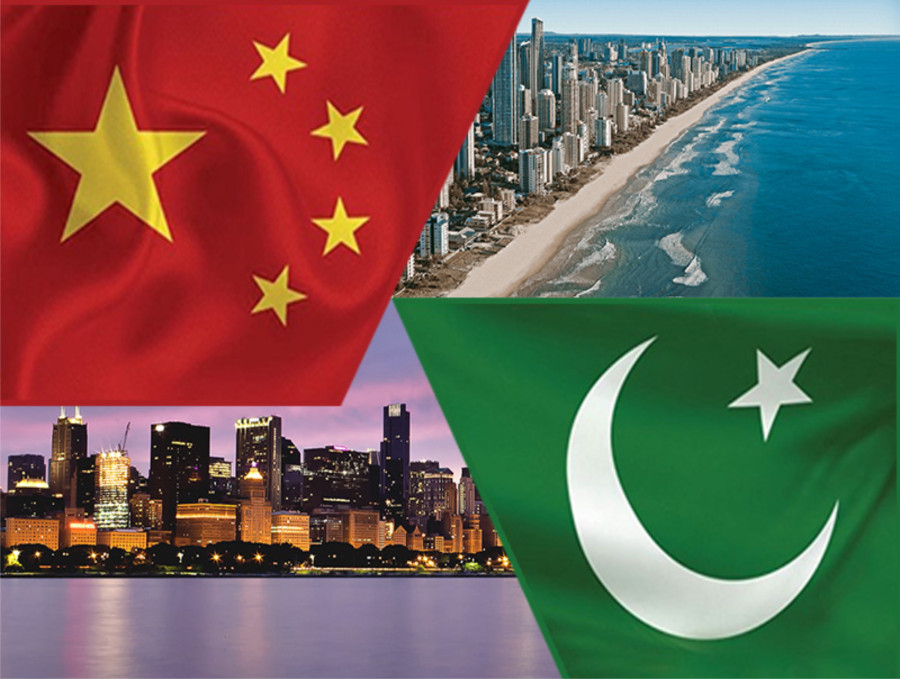Col ® Muhammad Hanif
The China-Pakistan Economic Corridor (CPEC) is a flagship project of the Belt and Road (B&R) Initiative of China. The CPEC is a US $ 52 billion project (being financed by China) to connect Kashghar city of China’s Xinjiang Autonomous Region with Gwadar port of Pakistan. The project comprises a network of roads, railways, airports, fibre optic-based communication systems and Special Economic Zones (SEZs). Basically the CPEC is meant to promote trade and investment-oriented economic development of China, Pakistan and the neighbouring countries and regions.
While the construction of the CPEC is being done according to its plan, the recent geopolitical changes pertaining to this region are further reinforcing the significance of the project that are likely to contribute towards speedy completion of the CPEC. For example, as reflected in the Business Standard, India, dated 2 June 2019, the US President Donald Trump has signed off on a presidential decree to cut off India’s tariff-free access to the US market under the Generalised System of Preferences (GSP) scheme, saying that India has not assured the United States that it will provide equitable and reasonable access to its markets to he US.
Also, due to the fresh economic sanctions imposed by the US on Iran after pulling out of the nuclear deal the US have refused to further extend the waiver earlier given to India for importing crude oil from Iran. More so, the US is also asking India not to purchase S-400 surface-to-air missile system from Russia to which India is resisting as it wants to maintain its strategic relations with Russia. Therefore, India is not comfortable with such US policies.
These hard policies of the Trump Administration have come because it seems that President Trump is getting wary of Indian Prime Minister Modi’s strategy of not meeting the obligations of being a linchpin of the USA’s Indo-Pacific strategy to contain China, rather, India is more interested in getting the US weapons, technology and economic investment. In fact, Modi wants to get double advantage by also maintaining India’s old strategic partnership with Russia and by developing very close relations with China.
Partly because of India’s deceptive politics with the US, and Pakistan’s cooperative policy of facilitating the US-Taliban peace talks and its support for intra-Afghan peace dialogue the US policy towards Pakistan appears to be changing for the better. This is indicated by the US President Trump’s recent invitation to Prime Minister Imran Khan to visit the US in July 2019. In this context, it is also a good development that the US has declared the Balochistan Liberation Army (BLA) as a terrorist organization. This will certainly help Pakistan in fighting terrorism in Balochistan. It seems that the US has ultimately realized that apart from India, it should also have good relations with Pakistan, as it is strategically important for peace in the region and stability in the Middle East.
Likewise, Russia is also supporting Pakistan’s strategy of fighting terrorism in the region and it too favours Pakistan’s cooperative strategy of supporting a dialogue process for bringing peace in Afghanistan. In this context, Russia sees Pakistan as an important country in the region to discourage the ISIS-initiated terrorism that also impacts the Central Asian Republics (CARs) and Russia. In view of this, despite Russia’s close strategic partnership with India, President Putin also wants to advance Russia’s relations with Pakistan. This is quite evident from Putin’s close meetings with Prime Minister Imran Khan on the sidelines of the recently-held SCO summit and his recent invitation to Imran Khan to attend the Eastern Economic Forum from Sept 4 to 6, 2019 in Vladivostok, Russia. Apart from this, Saudi Arabia, China, Qatar and Malaysia have financially supported Pakistan’s economic revival plan, and Saudi Arabia and Qatar have also invested in the CPEC.
In view of the above-discussed geopolitical changes, opposition to the CPEC will get diluted. While India is trying to develop closer relations with China, it is likely to lessen its opposition to the CPEC. On the other hand, in view of China and Russia’s recently solidified strategic partnership, Russian President Putin has fully supported the extension of the BRI to the Eurasian Economic Union, which seem to be influencing India to think of joining the BRI and may be the CPEC as well at an appropriate stage. Likewise the US is also not likely to oppose the CPEC. In this regard, there is likelihood that many regional and extra-regional countries, including Russia, will become members of the CPEC and will also invest in the project, which will benefit Pakistan and the region in a large way.









